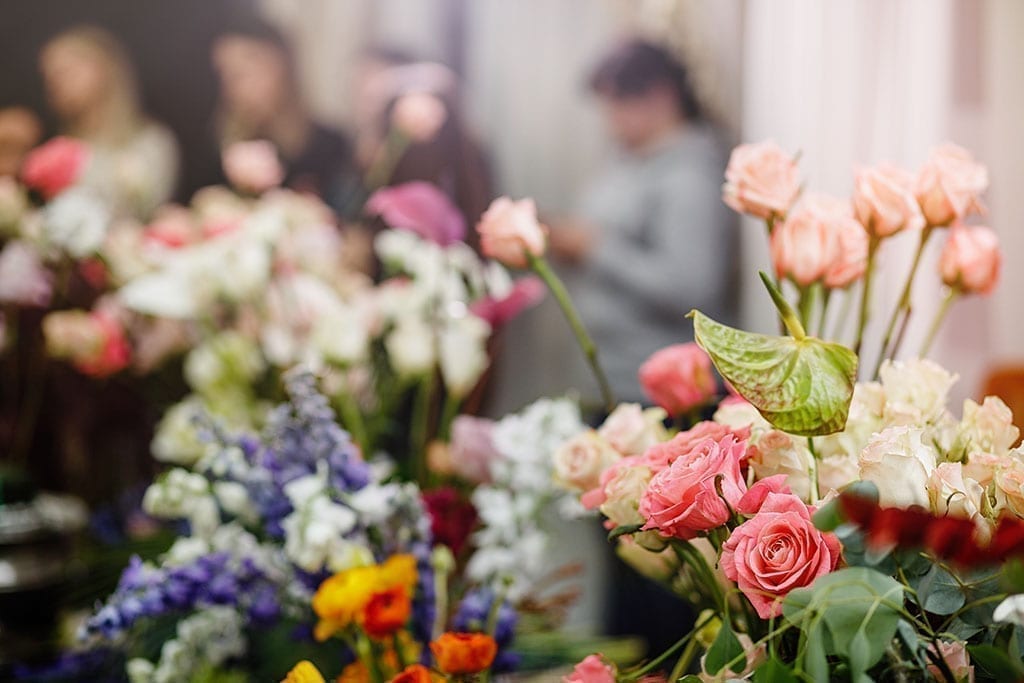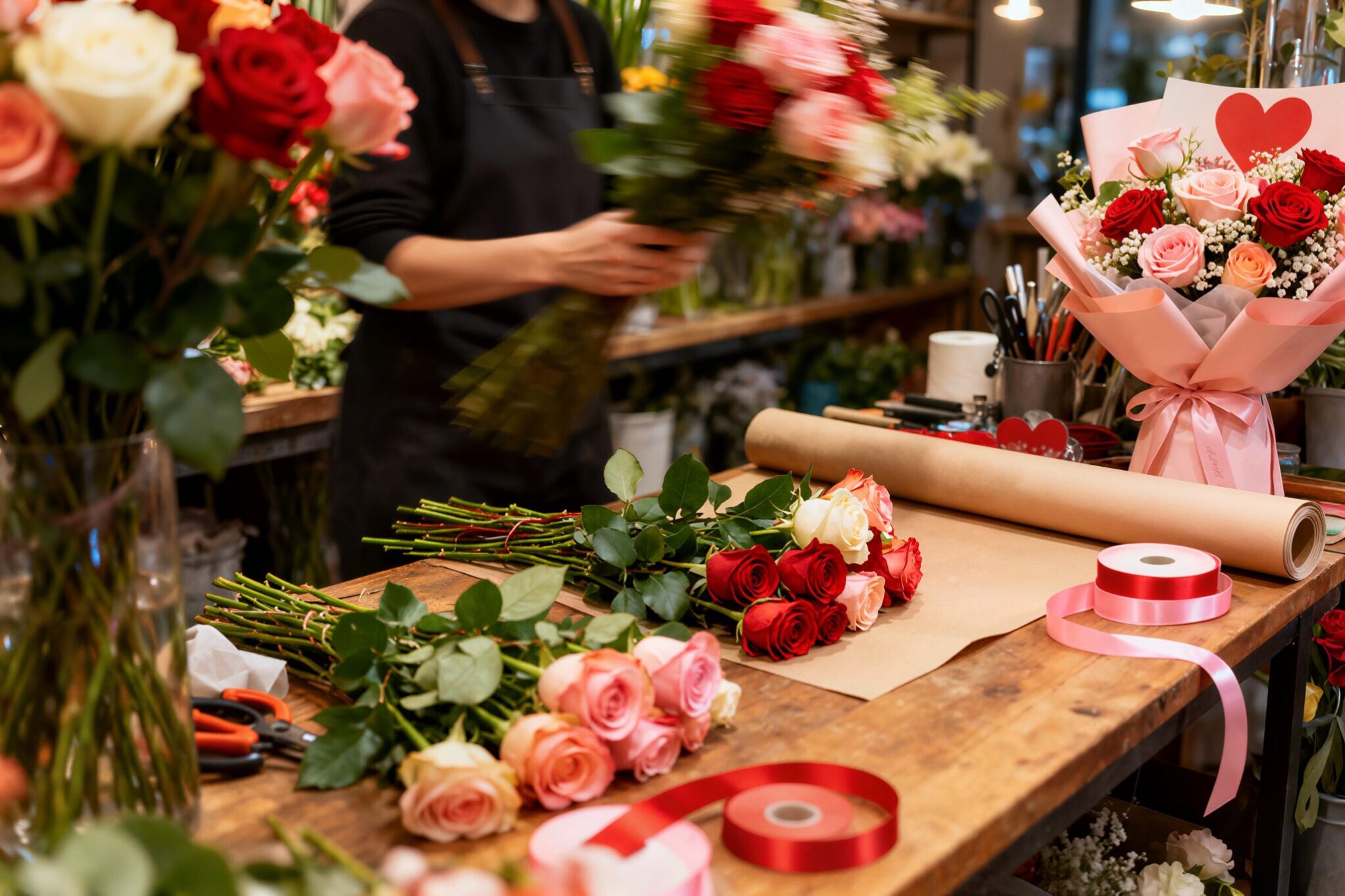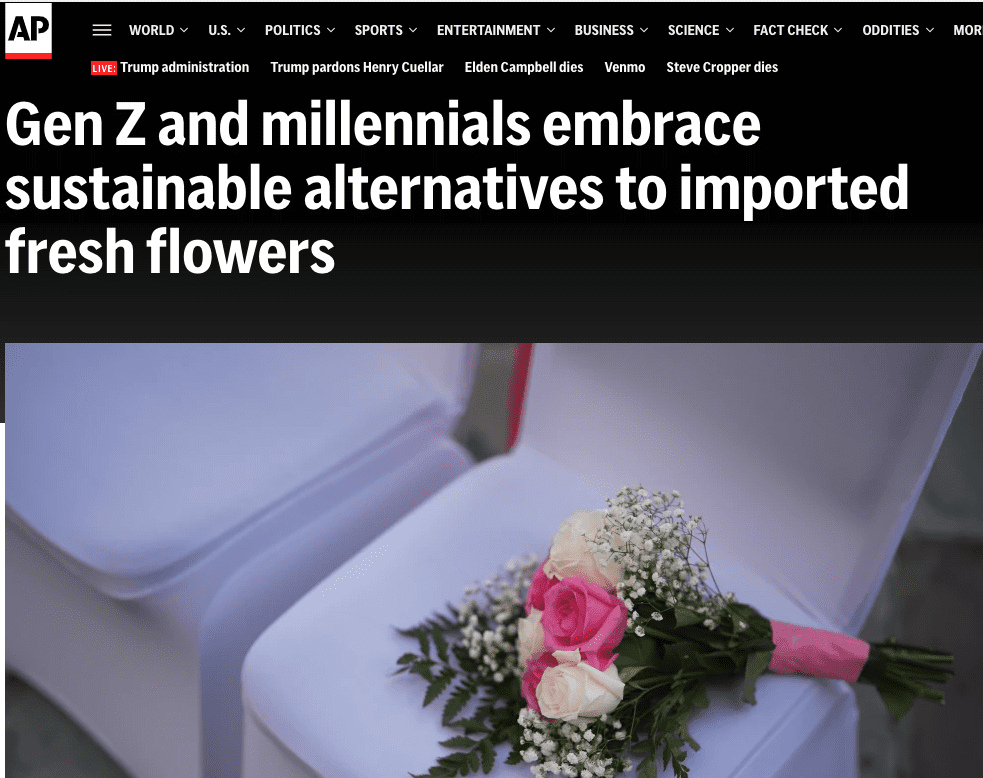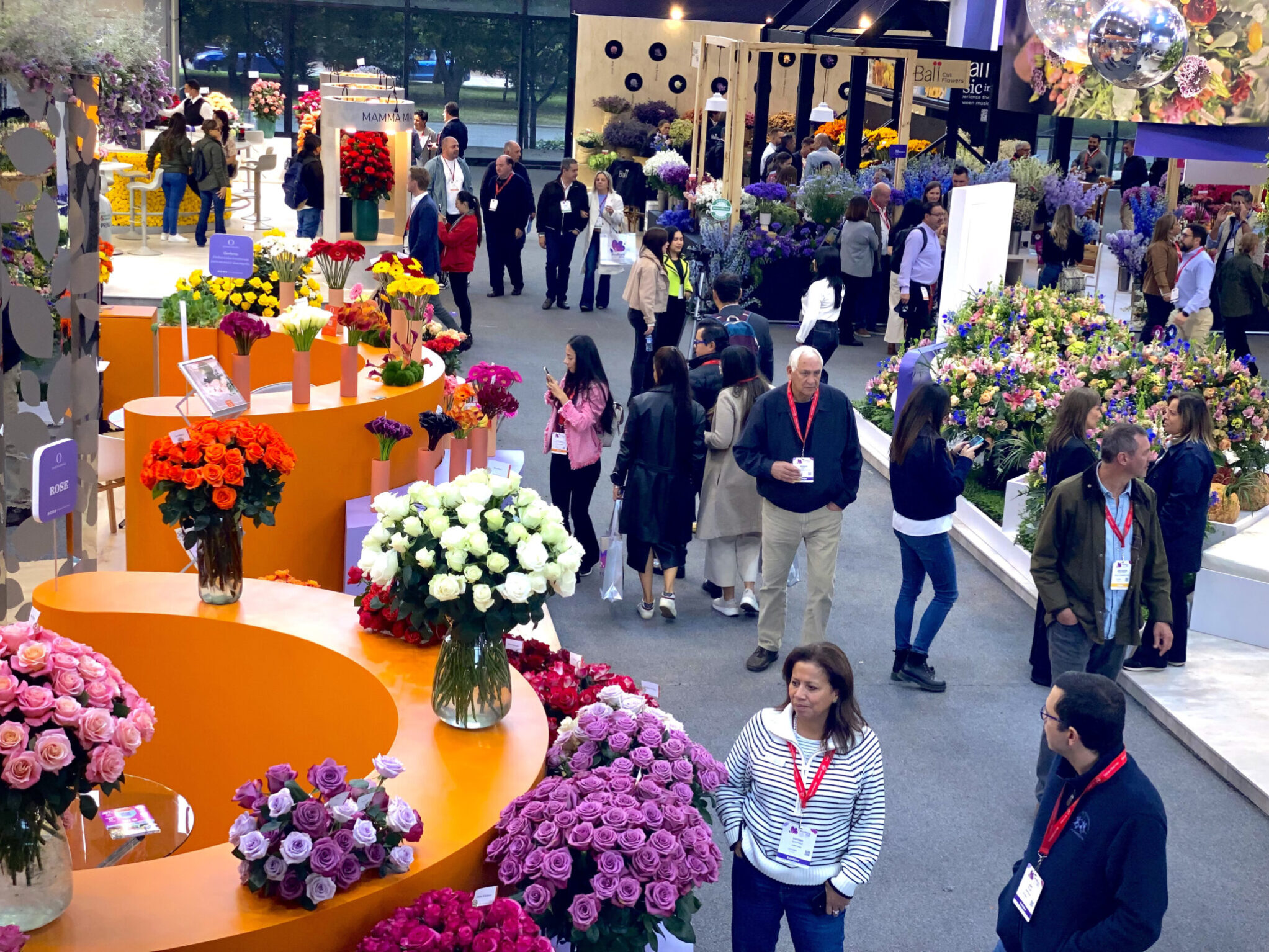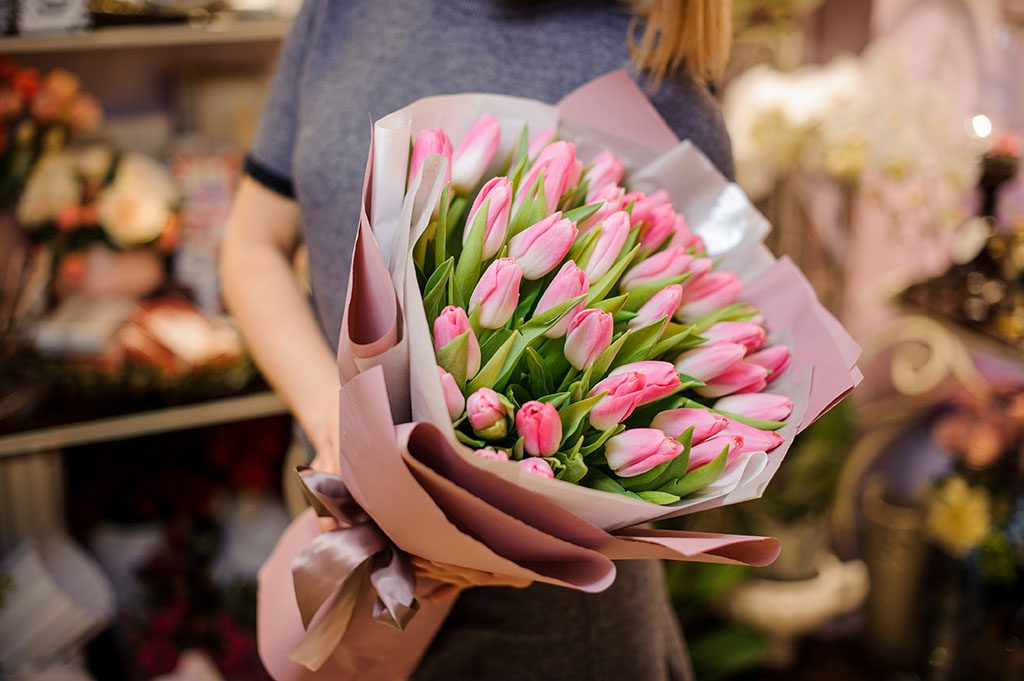 It’s not easy being green — but new consumer research suggests it’s worth the effort for florists. A recently released study indicates consumers prefer to buy flowers from a shop that embraces sustainable floral practices, and that they’re willing to pay more for those products.
It’s not easy being green — but new consumer research suggests it’s worth the effort for florists. A recently released study indicates consumers prefer to buy flowers from a shop that embraces sustainable floral practices, and that they’re willing to pay more for those products.
According to the study, U.S. Consumer Perceptions & Willingness to Pay for Sustainable Environmental Practices in the Floral Industry, facilitated by the Floral Marketing Fund, 61 percent of respondents said they were more willing to patronize sustainable floral businesses. In addition, at least 50 percent said they were willing to pay 10 percent or more over the price of similar products from businesses that don’t practice sustainability.
“The main purpose of this research was to investigate what consumers perceived as the most valuable environmentally sustainable attributes floral providers could add to their business model to become more eco-friendly,” says Dr. Coleman L. Etheredge, assistant professor of floral management at Mississippi State University and the report’s lead researcher.
The study asked respondents to indicate which sustainable practices would lead them to select one retailer over another. Sixty-five percent indicated they would be more willing to purchase from a retailer whose flowers were sourced from local farms or nurseries, making locally sourced the most important attribute. The study defined “locally sourced” as being grown within 100 miles of the retailer. In addition, 61.7 percent of respondents indicated they would pay a premium of 10 percent or more for locally-sourced products.
Respondents indicated the second most important attribute when selecting a retailer was whether they composted flower waste, with 63.9 percent saying they’d choose a composter over a retailer whose flower waste ends up in area landfills. Additionally, 59.5 percent said they would pay a premium of 10 percent or more for a composter’s products. Etheredge says he was surprised how important composting was to the survey respondents.
“I found it interesting how participants indicated they were willing to pay more for a sustainable attribute in which none of the added ‘value’ is passed directly along to the consumer,” he says. “Also, of all the sustainable attributes participants were asked about, composting floral waste is, in my opinion, the easiest that can be incorporated into a floral provider’s business model as it requires very little capital and space to start a compost pile, depending on the size of the business.”
Respondents indicated a willingness to pay even higher premiums, albeit with diminishing returns, for products from a retailer who either sources locally-grown flowers or composts floral waste. About 31 percent of respondents indicated they would be willing to pay a premium of 15 percent or more, about 18 percent said they would pay a premium of 20 percent or more, and about 8 percent said they would pay a premium of 25 percent or more.
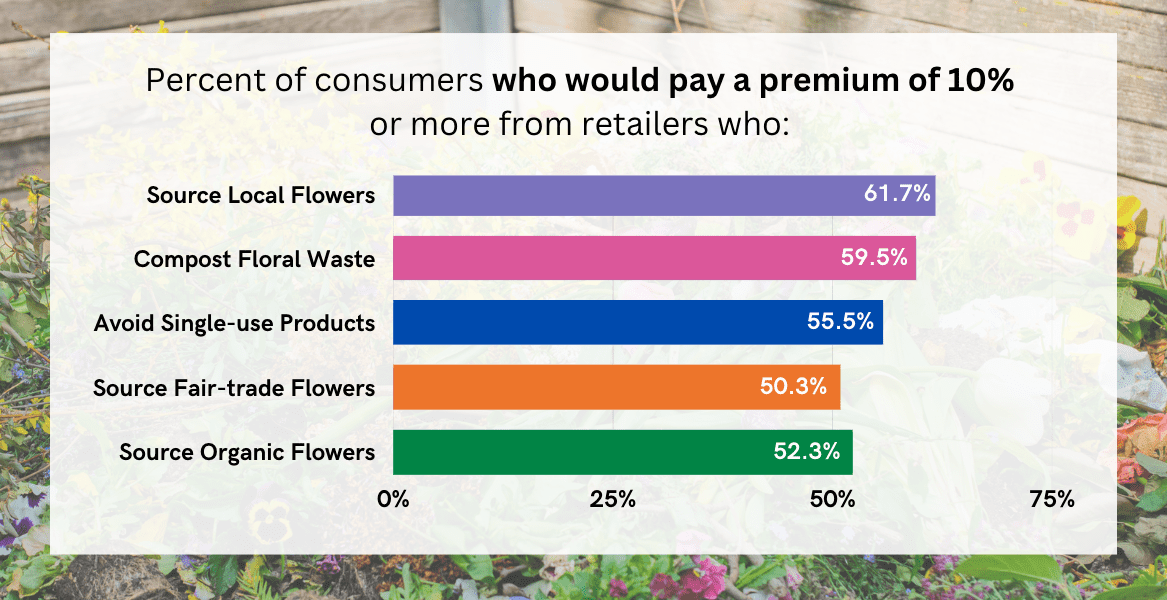
Source: U.S. Consumer Perceptions & Willingness to Pay for Sustainable Environmental Practices in the Floral Industry Study
“It’s my hope these findings will begin to remove any hesitancy floral providers may have about beginning to transfer to more sustainable business practices,” says Etheredge.
Other key takeaways:
- Respondents ranked the most important considerations when buying flowers as: reasonable prices, locally-sourced flowers, organic flowers, sustainable/recyclable/reusable materials, energy-saving business practices, and fair-trade sourced flowers.
- Most respondents (55.7 percent) said they would be more willing to shop at a retailer that had an environmentally friendly certification.
- On a 0-to-10 scale, with 10 expressing the highest interest level, 40 percent of respondents selected 6 or higher when asked whether they would like to learn more about sustainable floral practices.
- On a 0-to-10 scale, with 10 being completely sustainable, respondents indicated they perceived the floral industry to have a sustainability level of 6.
Etheredge says the report indicates there’s an opportunity for floral professionals to embrace green measures and then educate consumers about their own sustainable practices. Coupled together, these changes can help improve the public’s perception of the overall sustainability of the floral industry.
“The big thing I took away from the research is that if you are a floral provider that is currently doing anything within your business that is environmentally sustainable, you should be advertising this to the public,” says Etheredge.
The study was facilitated by the Floral Marketing Fund, in cooperation with the American Floral Endowment. It was co-sponsored by BloomNet and Syndicate Sales. Read the full report here. Next week, SAF Now will talk with retailers about how they plan to implement study results in their businesses in part two of the coverage of this study.
Laurie Herrera is a contributing writer for the Society of American Florists.

